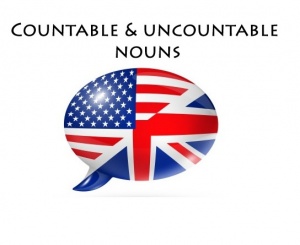Language/English/Grammar/Countable-and-Uncountable-Nouns
Jump to navigation
Jump to search
Rate this lesson:
Countable and Uncountable Nouns
There are two kinds of nouns: countable nouns and uncountable nouns.
Simple things you can count are countable nouns, for example, eggs. Countable nouns have plural forms, which usually end in -s. They also have singular forms. The singular nouns can have a or an before them.
Things you can't count are uncountable nouns; for example, milk. You can't count milk. With uncountable nouns, don't use plural -s or a or an. For example, uncountable noun rice, it is not correct to say rices or a rice.
Countable Nouns
Use "a/an" or plural "-s"
- I have an egg for breakfast everyday.
- I don´t eat bananas.
How many eggs do you eat a week?
- I eat a lot of eggs.
- I don´t eat many. (eggs)
- I don´t eat a lot of eggs.
Uncountable Nouns
Don't use "a/an" or plural "-s"
- I drink milk every morning.
- I don´t eat seafood.
How much milk do you drink a day?
- I drink a lot of milk.
- I don´t drink much. (milk)
- I don´t drink a lot of milk.

